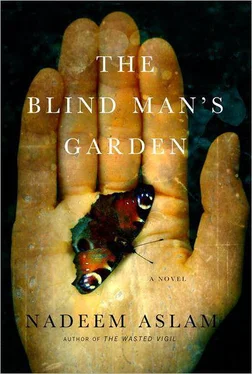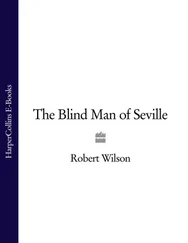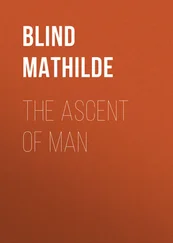‘Father, you take advantage of us.’
‘I know. First the Raj and now this.’
The girl leaves with a smile — her mother’s daughter. When Sofia went to Punjab University in Lahore for her MA, she had become distressed by the big city within days, and had returned to Heer, insisting she wouldn’t go back. Her father — who had dreamed of having educated children — had summoned Father Mede urgently. Father Mede had been her teacher here at St Joseph’s, and the two of them had persuaded her to return to university. She agreed but was back a few weeks later, telling them that she felt a sense of exclusion from the other students, the modern Lahore girls and boys, a few of whom laughed at the way she dressed and spoke, laughed at her burka. Her father thought all week and then uttered the four words that shook the entire family to its very foundations, even the most distant branches in remote towns and villages:
‘Take off your burka.’
Sofia was speechless.
‘Can you do that?’
‘Of course not.’
‘Would it make you feel less noticeable?’
‘It might.’
‘Then try it. Modesty and decency dwell in the mind, not in a burka. I want you to get an education and it seems that this issue is distracting you from that.’
And she had gone back without her burka, much to the horror of her mother and brother, who knew that the chances of her making a decent marriage were in complete ruins now. It was bad enough already that she, an unmarried girl, was living away from her parents in a big-city hostel where there was no parental supervision.
Whether she had panicked too early at finding herself in an alien environment and would have settled in time with only minor adjustments, there was no way of knowing. What did happen was that after she went back she prospered at the university. She did try the burka again in the third year but by then she had lost the habit. She bought five Kashmiri shawls to cover her head and body when she was teaching at Ardent Spirit, and there was a dazzling wine-coloured coat with a fur collar for the coldest days of winter, pinned to whose left shoulder was a brooch shaped like the turban pin of an emperor.
*
Father Mede stands up and crosses the room that has a pattern of black and white griffins on the floor. He comes to stand before the small painting on the wall that Sofia had made for him. The crucified Christ, and the weeping figures at the foot of the cross. They are his mother and his friends and they are weeping because this — the crucifixion — is taking place, and it is powerful because the suffering of the tortured man and the suffering of those watching him are in the same picture. Are in the same glance . Injustice is not occurring in a distant hidden pocket, and the grief of the victim’s relatives is not in a far removed place, disconnected from the crime. He will die, and those who love him are watching him — and all of it being watched by the viewer.
*
‘Father, who are those two young men I just saw by the piano room?’ Basie asks, entering the office.
‘Were there two of them? I think they might be the gardener’s grandsons or his helpers.’
‘I know his grandsons. And that wasn’t them.’
‘I’ll find out.’
‘How was your tour?’ Basie asks, and he walks back to the door and casts his eyes about. ‘I think they were too neatly dressed to be the gardener’s helpers.’
Father Mede smites his forehead. ‘They must have come with the angels.’
‘The angels are back?’
Father Mede opens a drawer and takes out the key to the assembly hall.
Together they walk out onto the colonnaded corridor, the row of classroom doors stretching along on one side of them, the blazing March garden on the other. It’s early so only a handful of students have arrived and there is a conspicuous silence in the classrooms. They pass the fourteen-year-old girl who had broken down one day three years ago as she held Father Mede’s hand and wept with love and perplexity. ‘You are so good, how can you be a Christian? Why won’t you convert to Islam?’ She said she didn’t want him to burn in Hell, and he had asked her to pray for his salvation. He has always maintained a cautious attitude over religion in this country. Although St Joseph’s is a Christian school, it is no longer a mission school as in a previous age, and both the Bible and the Koran are read at public functions, the festivals of both faiths marked through the year.
Father Mede unlocks the assembly hall and reveals the floor crowded with large shapes wrapped in newspaper. There are one hundred of them in total and he removes the paper from one to reveal Raphael’s face. The angel responsible for healing the ailments and wounds of human children.
These human-sized wooden figures will be winched up on steel wires to hover overhead in the assembly hall. They were sent away to be repainted by an establishment that decorates Heer’s trucks and rickshaws, and they have returned bathed in vivid colour, Raphael’s cheeks rouged with cyclamen pink. Each eye is a turquoise disc of glass held in place with a slender nail, almost a pin. They lie on their stomachs on the floor and the wings of each rise up from their backs taller than Basie and Father Mede.
Basie removes the newspaper from the flank of the figure nearest to him. A hand holding a black chain is revealed. He uncovers the face and breast.
‘After the Fall, Gabriel was sent to comfort Adam,’ Father Mede says, ‘and Michael to comfort Eve.’
Michael, who is Mikal in Islam. Described as having emerald-green wings and being covered in minute saffron-coloured hairs, each of which has a million faces that ask Allah in a million languages to pardon the sins of the faithful.
Father Mede places a hand on Basie’s shoulder. Basie touches it and then covers up Michael’s face.
‘They are all here,’ Father Mede says. ‘The Angels of the Seven Days of the Week. The Angel of Earthquakes. The Angel of Fascination. Of Dust. Of Doves.’ He looks up at the rings attached to the ceiling from which they will be suspended.
‘So they were brought here by the boys I saw?
‘It is possible. They arrived in three trucks and there was a small gang to unload them.’
‘I must ask the guard at the gate,’ Basie says. ‘We have to be careful.’
‘Don’t frighten the children.’
Yesterday the Ardent Spirit van had mentioned reports that a religious school had been bombed by the Americans in Afghanistan, killing a number of small children. The van slowed to a crawl outside St Joseph’s. ‘We’ll reduce America to the size of India, India to the size of Israel, Israel to nothing,’ the loudspeaker said as it lingered near the public monument at the end of the road, a giant fibreglass replica of the mountain under which Pakistan’s nuclear bomb was tested. Its colour marks the precise moment the device exploded. Unstilled after millions of years, the mountain had turned a pure white. Its insides are hollow and it is lit up from within at night: in the pale evenings from the balcony of his room above the school, Father Mede watches it come on — one moment it is dead and grey but then suddenly, like a fever rising from its very core, a glow spreads on the slopes and it swells and brightens until its radiance rivals the moon, and the beggar children who shelter in there can be seen moving in silhouette on the brilliant sides.
The crinkled newspaper is straightening and coming away, and after Basie leaves Father Mede watches the figure of Michael reveal itself here and there out of the newsprint — allowing glimpses of the golden robes, the chains with which he holds Satan, the sword in the other hand. It is said that cherubim were created out of the tears Michael shed over the sins in the world. The Chief of the Order of Virtues and the Chief of Archangels, he is also the Prince of the Divine Presence, the Prince of Light and the Prince of God. He is the Angel of Repentance, Mercy and Righteousness, the Guardian of Peace and the Angel of Earth, and the patron of policemen and soldiers.
Читать дальше












